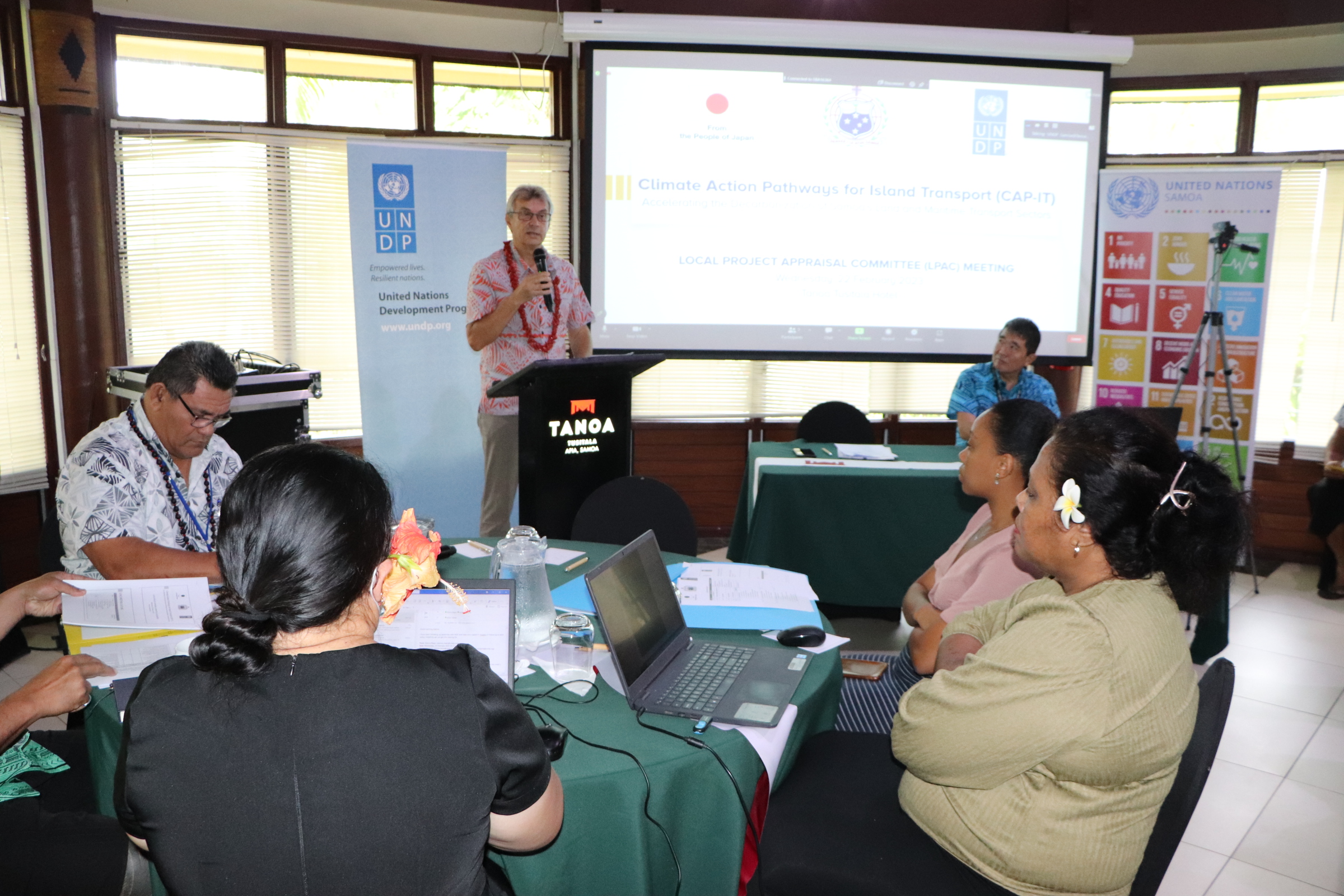A new multi-million Tala project will help Samoa accelerate climate change
mitigation efforts through the low-carbon transition of its land and maritime transport sectors away
from the country’s heavy reliance on fossil fuels.
The ‘Climate Action Pathways for Island Transport (CAP-IT): Accelerating the Decarbonization of
Samoa’s Land and Maritime Transport Sectors’ Project will begin in April this year, following the
official signing of the project document by the Government of Japan, the United Nations
Development Programme (UNDP), and the Deputy Permanent Representative of Samoa in New
York this week.
The CAP-IT project is a component of the Japan-funded regional project, ‘Promoting Green
Transformation in the Pacific Region towards Net-zero and Climate-Resilient Development’, also
supporting Papua New Guinea, Timor-Leste and Vanuatu in achieving their green transformation
ambitions for a more inclusive, climate-resilient future.
The US$36.8 million regional project, with a country allocation of US$15.5 million for Samoa, is
scheduled for completion in March 2025.
“On behalf of the Government of Japan, it is a great honor to support this initiative tackling climate
change issues across the Pacific region by funding CAP-IT in collaboration with the UNDP. While
the four projects will be implemented simultaneously, the CAP-IT is the largest scale project and
the Embassy of Japan in the Independent State of Samoa is proud of launching the project during
the 50 th anniversary of the establishment of diplomatic relations between Japan and Samoa by
taking a leading role in the decarbonization of Samoa’s transport sector, counting on UNDP’s
expertise,” said Keisuke Senta, Ambassador of Japan to Samoa.
“The continuation of UNDP’s long-standing collaboration with the Government of Japan, a trusted
partner, will undoubtedly provide urgent and critical support to Samoa to tackle the climate crisis
head on, leveraging green transformation pathways that prioritize leaving no one behind in the participation, access and safety of land and maritime transport for all,” said Jorn Sorensen, UNDP
Resident Representative.
According to Samoa’s latest National Greenhouse Gas Inventory (2020), the road transport sector,
largely dependent on fossil fuels, is the country’s largest emitter of carbon dioxide, accounting for
27.4% of greenhouse gas (GHG) emissions. With vehicle ownership having increased by 69.5%
since 2013, along with the subsequent increase of fossil fuel imports to meet the growing demands
of this sector, green transformation of land transport is ever more urgent to pivot towards zero-
emission economic development.
Samoa’s ocean dependence and heavy reliance on the shipping industry as its national economic
lifeline, similarly, deems necessary the decarbonization of the maritime transport sector with the
need to explore cost-effective low-carbon technologies and operational improvements to fuel
efficiency and emissions reductions that advance the achievement of Samoa’s enhanced
Nationally Determined Contribution to the Paris Agreement on Climate Change.
The project aims to promote urgent and inclusive decarbonization by accelerating the uptake of
electrical vehicles and exploration of low-carbon propulsion systems to transform Samoa’s land
and maritime transport sectors respectively. Planned interventions will adopt an integrated
approach to create an enabling environment through strengthened and gender-sensitive
institutional governance, financial, infrastructural, and technical capacity development.
Japan is committed to tackling climate change by declaring international commitments such as
becoming carbon neutral by 2050 and reducing GHG emissions by 46% by fiscal year 2030 in
comparison to its fiscal year 2013 levels. To strengthen its commitments, the Government of Japan
has just approved a roadmap for Green Transformation (GX) on February 10, 2023, and based on
that, the Government of Japan will take a new leadership role in its contribution to global
decarbonization with many initiatives such as the creation of clean markets and the promotion of
innovative cooperation amongst others.
Relevant to the Asia & Pacific region, Japan has also determined to contribute to decarbonization
by creating the Asia Zero Emission Community (AZEC) and the CAP-IT is an extension of the
AZEC, based on the following statement by Prime Minister Kishida in June 2022: “Pacific Island
Countries are also important partners for the realization of a Free and Open Indo-Pacific. We will contribute to strengthening the foundation for their sustainable and resilient economic
development, including addressing the existential challenge of climate change.”

